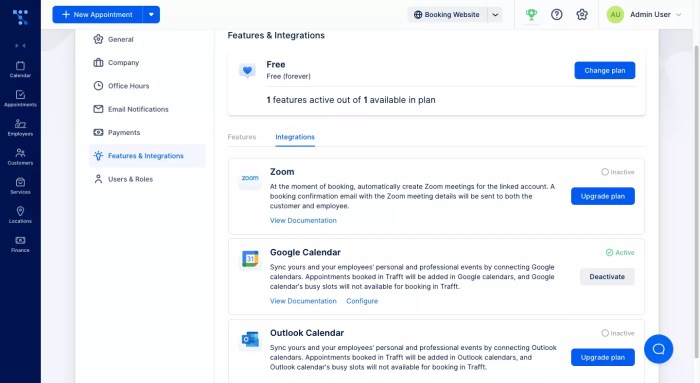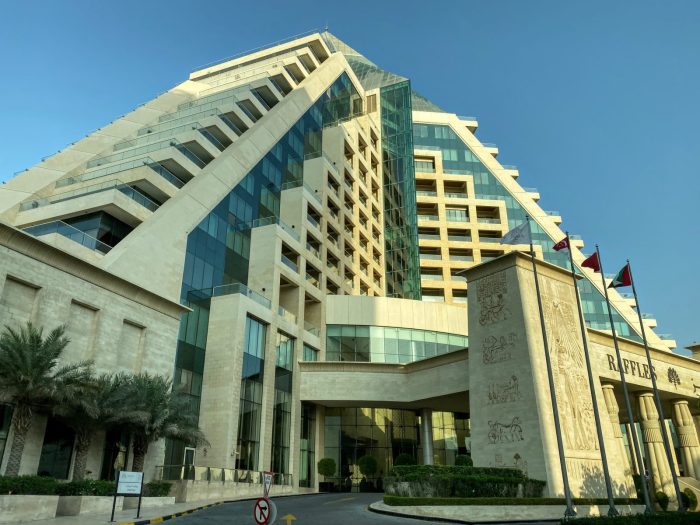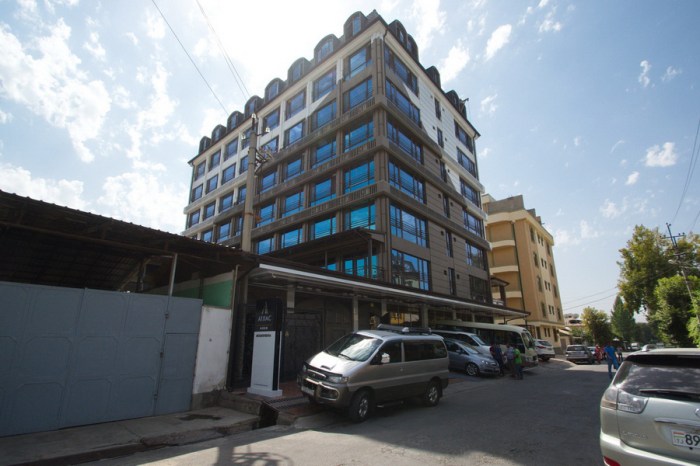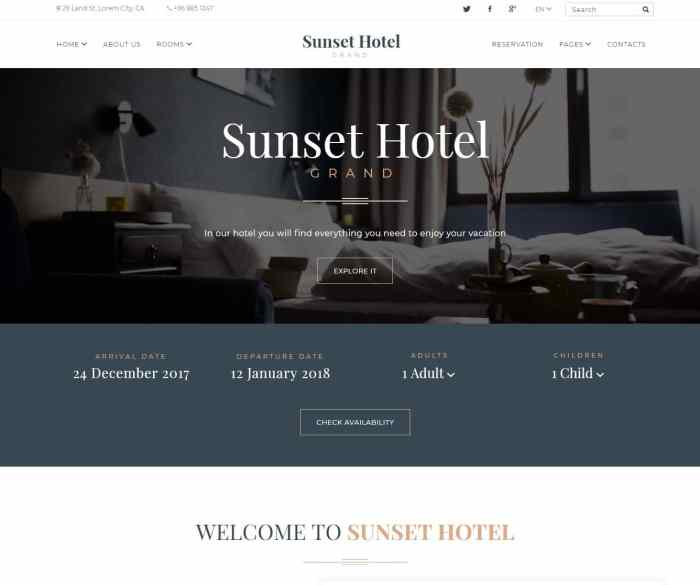Booking Engine A Comprehensive Guide
Booking engine sets the stage for a deep dive into the world of online reservations. From defining its core functionalities to exploring its technical underpinnings, this guide provides a comprehensive overview. This discussion covers everything from basic search and booking features to advanced user experience design, technical development, and integration strategies.
The evolution of booking engines has been remarkable, with advancements in technology enabling seamless experiences across diverse industries. This exploration reveals how booking engines have not only improved efficiency but have also revolutionized how customers interact with businesses, from hotels and airlines to event ticketing and beyond. A key takeaway is how this technology adapts to meet ever-changing consumer preferences.
Defining Booking Engines
A booking engine is a crucial component in many industries, facilitating the online booking process for various services. It acts as an intermediary between service providers and customers, streamlining the transaction and improving operational efficiency. These platforms are not just about taking reservations; they encompass a suite of functionalities that enable customers to search, compare, and select available options, ultimately leading to a smooth and efficient booking experience.
Booking engines are versatile tools, supporting diverse industries from hotels and airlines to event ticketing and e-commerce. Their adaptability lies in their ability to be tailored to specific needs and functionalities, creating a platform that meets the unique requirements of each service provider.
Core Functionalities of Booking Engines
Booking engines offer a wide range of functionalities that streamline the booking process. These include search capabilities, allowing customers to filter and refine their options based on various criteria. They also provide detailed information about available services, facilitating informed decisions. Crucially, they handle the entire booking process, from initial inquiry to final confirmation, ensuring a smooth and secure transaction. Further, booking engines can integrate with payment gateways, enabling secure transactions. Finally, they offer reporting and analytics features to provide valuable insights into customer behavior and service usage.
Types of Booking Engines
Booking engines are categorized by the services they support. Common types include hotel booking engines, airline booking engines, and event ticketing platforms. These types vary in their functionalities and capabilities, but share the core objective of enabling seamless booking experiences. A hotel booking engine, for instance, focuses on hotel rooms, while an airline booking engine handles flights and related services.
Components and Technologies
The operation of a booking engine relies on several key components. A robust database is essential for storing and managing service availability, pricing, and customer information. User interfaces (UIs) are critical for providing a user-friendly experience. Security measures are paramount to safeguard sensitive customer data. Payment gateways are required for secure financial transactions. Finally, integration with other systems, like property management systems (PMS) in hotels, is vital for data synchronization and smooth operations. The underlying technology often involves a combination of programming languages, databases, and cloud platforms.
Architectures
Booking engines can utilize different architectures. A centralized architecture involves a single system managing all aspects of the booking process. This approach can be simpler to manage initially, but it may not scale well with growing demand. Distributed architectures, on the other hand, distribute tasks across multiple servers, enhancing scalability and resilience. This approach is commonly used in large-scale booking engines that need to handle high volumes of transactions.
Examples Across Industries
Booking engines are widely used across various industries. For hotels, platforms like Expedia and Booking.com enable customers to search and book rooms across a vast network of hotels. In the airline industry, engines like Kayak and Google Flights allow customers to compare flight options from different airlines. Event ticketing platforms like Eventbrite facilitate the sale of tickets for concerts, conferences, and other events.
Comparison of Booking Engine Types
| Type | Features | Pricing Models | Target Users |
|---|---|---|---|
| Hotel Booking Engine | Room search, availability, booking, and payment processing | Commission-based, per-booking fees, or a combination | Travelers seeking hotel accommodations |
| Airline Booking Engine | Flight search, availability, booking, seat selection, baggage options | Commission-based, per-booking fees, or a combination | Travelers needing air travel services |
| Event Ticketing Engine | Event listing, ticket sales, seat selection, payment processing | Per-ticket fees, or tiered pricing structures | Attendees looking for event tickets |
Functionality and Features
A booking engine is more than just a website; it’s a powerful tool that streamlines the entire booking process. It acts as a central hub for managing reservations, ensuring smooth operations, and providing a positive user experience. By automating many tasks, booking engines free up staff time, improve accuracy, and ultimately boost revenue.
Core functionalities of a booking engine are designed to handle the entire reservation process efficiently, from initial search to final confirmation. This involves meticulous data management, integration with various systems, and a focus on enhancing the customer journey. Sophisticated booking engines go beyond basic search and booking, offering a suite of features that cater to complex needs.
Core Functionalities, Booking engine
Booking engines are built around the core functionalities of searching, filtering, and booking. The search function allows users to quickly locate available products or services, while filtering refines the search results based on specific criteria. The booking functionality then facilitates the finalization of the reservation. These core functions are essential for streamlined customer interaction and efficient management of inventory.
Features of a Sophisticated Booking Engine
A robust booking engine extends beyond the basics. Advanced features often include user accounts for personalized experiences, facilitating repeat bookings, and streamlined future interactions. Robust payment processing capabilities, integrated with secure gateways, are crucial for handling transactions smoothly and securely. Inventory management is a key feature, ensuring accurate availability tracking and preventing overbooking.
Integration Points
Booking engines often integrate with other systems to provide a comprehensive solution. Integration with Customer Relationship Management (CRM) systems allows for seamless data flow, enabling better customer relationship management. Integration with Property Management Systems (PMS) in the hospitality industry, for example, ensures that room availability is accurately reflected in the booking engine. Such integrations streamline operations and reduce manual data entry.
Customer Journey and User Experience
Booking engines play a critical role in supporting the customer journey, from initial browsing to final confirmation. A well-designed booking engine guides users through the process, providing clear information and intuitive navigation. A positive user experience enhances customer satisfaction and increases the likelihood of conversions.
Typical Workflow
The following table illustrates the typical workflow within a booking engine, from initial search to final confirmation.
| Step | Description |
|---|---|
| Search | Users input their desired criteria (dates, locations, etc.) to find available options. |
| Filtering | Users refine their search results using various filters (price range, amenities, etc.). |
| Viewing Details | Users review detailed information about available options, including descriptions, images, and pricing. |
| Selection | Users select their preferred option and proceed to the booking process. |
| Booking Details | Users provide necessary information (names, contact details, etc.) and confirm the booking. |
| Payment Processing | Secure payment gateway processes the transaction. |
| Confirmation | Users receive a confirmation email with booking details. |
User Experience and Interface
A seamless user experience is crucial for a booking engine’s success. A well-designed interface not only guides users through the booking process but also fosters a positive perception of the platform and the offered services. A user-friendly interface significantly impacts conversion rates and customer satisfaction.
A robust booking engine requires careful consideration of user interactions, ensuring intuitive navigation and clear communication. The design should anticipate user needs and minimize friction points, thus enhancing the overall user experience and fostering trust.
Essential Elements for a User-Friendly Interface
A user-friendly interface is paramount for a booking engine. It encompasses intuitive navigation, effective search functionality, and a smooth booking flow. Clear visual cues, logical organization, and consistent design language contribute to a positive user experience.
- Navigation: Intuitive navigation is essential for users to easily find the desired information and services. This involves clear menus, logical categorization, and prominent search functionalities. For instance, a well-structured menu allowing users to easily navigate between different service categories and dates is crucial.
- Search Functionality: A powerful search feature allows users to quickly locate the specific services they need. This includes flexible date ranges, advanced filters (e.g., price, availability, amenities), and precise location specifications. An example of an effective search allows users to filter by specific criteria like the number of guests or the type of accommodation.
- Booking Flow: The booking flow should be straightforward and easily understandable. Clear instructions at each step, progress indicators, and confirmation messages help users track their booking progress and build confidence. A clear and concise booking process with clear instructions at each stage minimizes confusion and errors.
Accessibility and Inclusivity
Ensuring accessibility and inclusivity in booking engine design is crucial for catering to a broader audience. This involves adhering to accessibility guidelines, providing alternative text for images, and supporting various screen reader technologies.
- Adherence to Accessibility Guidelines: Adhering to Web Content Accessibility Guidelines (WCAG) is vital for creating a user experience that is usable by people with disabilities. This includes ensuring sufficient color contrast, keyboard navigation, and proper use of headings and labels.
- Alternative Text for Images: Providing alternative text for images ensures that users who cannot view images can still understand the content. This also helps search engines better understand the context of the page, which improves.
- Support for Screen Reader Technologies: Supporting various screen reader technologies, such as JAWS and NVDA, allows users with visual impairments to navigate the booking engine effectively.
Mobile-First Design Best Practices
Given the prevalence of mobile devices, mobile-first design is essential for booking engines. This involves prioritizing a responsive design that adapts seamlessly to different screen sizes and optimizing the interface for touch interactions.
- Responsive Design: Responsive design ensures the booking engine adapts to various screen sizes and orientations. This includes adjusting layouts, fonts, and images to maintain readability and usability across different devices.
- Touch-Friendly Interface: Optimizing the interface for touch interactions, such as large buttons, clear tap targets, and intuitive gestures, enhances the mobile experience. This improves usability for users on smaller screens.
- Simplified Forms: Simplifying forms and input fields on mobile devices reduces the risk of errors and improves the user experience. This involves using appropriate input types and minimizing the number of required fields where possible.
User Interface Elements and Functionalities
The following table Artikels key user interface elements and their corresponding functionalities within a booking engine.
| Element | Functionality |
|---|---|
| Search Bar | Allows users to input criteria for their desired services, dates, and locations. |
| Calendar | Provides a visual representation of available dates and times for booking. |
| Filter Options | Enables users to refine their search results based on specific criteria, such as price, amenities, or location. |
| Booking Summary | Displays a comprehensive summary of the selected booking details, including dates, services, and prices. |
| Payment Options | Presents secure and reliable payment methods for completing the booking. |
| Confirmation Page | Confirms the booking, including booking details and contact information. |
Impact on Conversion Rates and Customer Satisfaction
A positive user experience directly influences conversion rates and customer satisfaction. A well-designed booking engine that is intuitive and easy to use encourages users to complete their bookings. This leads to higher conversion rates and fosters customer loyalty.
A seamless booking process leads to higher conversion rates and increased customer satisfaction.
Technical Aspects and Development
Building a robust booking engine necessitates careful consideration of its technical underpinnings. This involves selecting appropriate programming languages, designing efficient databases, implementing secure protocols, and seamlessly integrating payment processing. A well-structured technical framework ensures scalability, reliability, and maintainability.
Programming Languages and Frameworks
Commonly used programming languages for booking engine development include Java, Python, and PHP. These languages offer diverse libraries and frameworks that streamline development. For instance, Java’s Spring framework or Python’s Django framework facilitate rapid application development and provide robust support for various functionalities. Choosing the right language depends on the specific project requirements and existing infrastructure.
Databases and Data Structures
Databases play a crucial role in managing booking data. Relational databases like MySQL or PostgreSQL are prevalent choices for structured data storage. These databases effectively handle the relationships between bookings, users, and other entities. Data structures like NoSQL databases can be beneficial for handling large volumes of unstructured data, like user reviews or preferences. Careful consideration of data modeling and normalization is vital for ensuring data integrity and efficient querying.
Security Considerations
Security is paramount for booking engines. Implementing robust security measures protects sensitive user data, including credit card information. Data encryption using industry-standard protocols like TLS/SSL is crucial for secure communication. Regular security audits and penetration testing help identify vulnerabilities and ensure compliance with industry standards. Furthermore, implementing multi-factor authentication enhances security by requiring additional verification steps.
Payment Gateway Integration
Integrating payment gateways is essential for processing transactions securely. Popular payment gateways like Stripe, PayPal, or Square offer APIs that allow seamless integration with the booking engine. These APIs handle the complexities of transaction processing, including authorization, capture, and refunds. Carefully selecting a reputable payment gateway with strong security protocols is crucial for a reliable payment system.
Technical Requirements
| Category | Requirement | Description |
|---|---|---|
| Programming Language | Java | Object-oriented programming language with extensive libraries and frameworks. |
| Framework | Spring Boot | Rapid application development framework for Java, offering support for RESTful APIs and other functionalities. |
| Database | PostgreSQL | Powerful relational database management system known for its scalability and reliability. |
| Payment Gateway | Stripe | Popular payment gateway with robust APIs and security protocols. |
| API Libraries | Spring Boot starter for Stripe | Simplifies Stripe integration within the Spring Boot framework. |
Integration and Optimization
Booking engine integration with existing systems is crucial for a smooth and efficient online booking process. This integration ensures data consistency, avoids redundant manual processes, and reduces the risk of errors. Proper optimization, in turn, enhances user experience by guaranteeing fast loading times and reliable functionality, especially under high-traffic conditions.
Effective integration and optimization are paramount for a booking engine’s success. This involves a careful approach to system compatibility, performance tuning, and proactive measures to handle peak loads. Well-designed APIs and robust caching mechanisms are vital for achieving this.
Importance of Integration
Integrating a booking engine with existing systems like inventory management systems and payment gateways is essential for data accuracy and streamlined operations. This eliminates the need for manual data entry, reducing the potential for errors and improving data consistency across platforms. Real-time updates of availability and transaction details contribute to a more accurate and trustworthy booking experience for users. For example, if a hotel’s booking engine is integrated with its inventory management system, it can automatically update room availability in real-time, preventing double bookings.
Optimization Techniques
Several techniques can optimize booking engine performance. Database optimization is key, involving strategies like indexing and query optimization to ensure efficient data retrieval. Caching frequently accessed data can significantly reduce database load, leading to faster response times. Properly implemented caching strategies can dramatically reduce server load, making the booking engine more responsive to user requests.
Performance Testing and Load Balancing
Performance testing is vital for ensuring the booking engine can handle high-volume booking scenarios without performance degradation. Load testing simulations are crucial to identify potential bottlenecks and optimize system configurations to manage peak traffic periods. Load balancing distributes incoming traffic across multiple servers, preventing overload on any single server and ensuring consistent performance even during high-demand periods.
Role of APIs in Integration
Application Programming Interfaces (APIs) facilitate seamless integration with third-party applications. Well-defined APIs enable smooth data exchange, allowing for easy integration with payment gateways, loyalty programs, or other external services. APIs act as bridges, connecting the booking engine with external systems, ensuring a smooth flow of information and transactions.
Comparison of Optimization Strategies
| Optimization Strategy | Description | Potential Impact on Performance |
|---|---|---|
| Database Indexing | Creating indexes on frequently queried columns | Improved query speed, reduced database load |
| Caching Strategies (e.g., Memcached, Redis) | Storing frequently accessed data in a cache | Faster response times, reduced database load |
| Load Balancing | Distributing traffic across multiple servers | Enhanced availability, improved performance under load |
| API Integration | Connecting with third-party services | Seamless data exchange, broader functionality |
Trends and Future Developments

Source: sitepoint.com
Booking engines are constantly evolving to meet the dynamic demands of the modern travel and booking landscape. The future of these platforms hinges on their ability to adapt to emerging technologies, changing consumer preferences, and the increasing importance of data-driven insights. This adaptability will be crucial in maintaining market competitiveness and ensuring a seamless and personalized experience for users.
The integration of advanced technologies, such as artificial intelligence and augmented reality, is reshaping the way customers interact with booking platforms. Data analytics plays a vital role in understanding user behavior and optimizing the booking process. This forward-thinking approach allows booking engines to proactively anticipate and fulfill customer needs, leading to improved user satisfaction and increased bookings.
Emerging Trends in Booking Engine Technology
Booking engines are embracing innovative technologies to enhance the user experience and streamline the booking process. AI-powered recommendations, personalized experiences, and intuitive interfaces are becoming increasingly prevalent. These features are designed to make the booking process more efficient, relevant, and engaging for users.
Impact of New Technologies
New technologies are significantly impacting the future of booking engines. Blockchain technology, for instance, offers potential for increased security and transparency in transactions. Augmented reality (AR) is poised to revolutionize the way customers visualize and experience travel destinations. This technology can allow users to virtually explore potential hotels or vacation spots before making a booking, leading to a more informed decision-making process.
Adapting to Changing Consumer Preferences
Consumers are increasingly seeking personalized experiences and seamless interactions across various touchpoints. Booking engines are adapting by providing tailored recommendations, dynamic pricing, and personalized travel itineraries. This personalization allows users to find the best possible travel options that align with their individual needs and preferences. For example, users might be presented with deals on flights that match their travel style or preferred airline, resulting in a more focused and targeted search experience.
Role of Data Analytics
Data analytics is crucial for understanding user behavior, preferences, and trends. Booking engines leverage this data to personalize recommendations, optimize pricing strategies, and improve the overall user experience. By analyzing data on user searches, booking patterns, and feedback, platforms can identify areas for improvement and develop strategies to enhance customer satisfaction. This data-driven approach enables booking engines to create a more tailored and effective booking process.
Potential Future Functionalities
| Feature | Description | Integration Points |
|---|---|---|
| AI-powered Chatbots | Interactive chatbots to answer customer queries, provide real-time assistance, and offer personalized recommendations. | Website, mobile app, social media |
| AR/VR Destination Visualization | Interactive 3D models of destinations, allowing users to virtually explore hotels, attractions, and local areas. | Website, mobile app |
| Predictive Booking Engine | Algorithms to predict demand and suggest optimal booking times based on historical data and real-time trends. | Pricing, inventory management |
| Blockchain-based Security | Enhanced security and transparency in transactions through blockchain technology, reducing fraud and improving trust. | Payment processing, user authentication |
| Personalized Travel Planning Assistant | An integrated platform to manage all aspects of a trip, from booking accommodations to arranging transportation. | Travel planning, booking, and payment |
Case Studies and Examples: Booking Engine
Booking engine implementations have demonstrably transformed various industries, boosting efficiency and revenue. Real-world examples highlight the crucial role of these systems in streamlining operations and optimizing customer experiences. Successful implementations, along with the challenges faced and solutions adopted, provide valuable insights into the effective application of booking engines.
Successful Implementations Across Industries
Booking engines are not limited to specific industries. Their impact can be seen across diverse sectors, from hospitality and travel to healthcare and e-commerce. Successful implementations showcase how booking engines can enhance operations and drive revenue growth.
Hospitality Sector Case Study: Hotel X
Hotel X, a mid-sized hotel chain, implemented a new booking engine to streamline its online booking process. The previous system was cumbersome and inefficient, leading to lost bookings and frustrated customers. The new booking engine offered a user-friendly interface, allowing customers to browse rooms, make reservations, and manage their accounts easily. This improved customer experience translated into a 15% increase in online bookings within the first year. The engine also automated many tasks, reducing staff workload and improving overall operational efficiency.
Travel Agency Case Study: Travel Solutions
Travel Solutions, a travel agency, adopted a booking engine to manage its diverse range of travel products and services. The agency previously relied on a manual system, making it challenging to track bookings, manage inventory, and respond to customer queries efficiently. The booking engine provided a centralized platform for all travel bookings, streamlining operations and improving customer service. The improved efficiency allowed the agency to expand its service offerings, cater to a wider range of customers, and ultimately increase revenue by 20%.
E-commerce Case Study: Online Store Y
Online Store Y, an online retailer specializing in fashion apparel, implemented a booking engine to facilitate appointments for personal styling and consultations. The previous method relied on manual scheduling, which often led to missed appointments and frustrated customers. The booking engine allowed customers to schedule appointments online at their convenience, ensuring better customer satisfaction. This improvement also led to a significant increase in appointment bookings, generating new revenue streams and enhancing the overall customer experience.
Comparative Analysis of Case Studies
| Industry | Key Features | Outcomes | Challenges Faced | Solutions Adopted |
|---|---|---|---|---|
| Hospitality (Hotel X) | User-friendly interface, automated tasks, and inventory management | 15% increase in online bookings, improved efficiency | The cumbersome old system, lost bookings | Intuitive booking engine, streamlined workflow |
| Travel Agency (Travel Solutions) | Centralized platform, inventory management, and customer service improvement | 20% increase in revenue, expanded service offerings | Manual system, difficulty tracking bookings | Streamlined operations, improved customer service |
| E-commerce (Online Store Y) | Online appointment scheduling, personal styling | Increased appointment bookings, new revenue streams | Missed appointments, frustrated customers | Customer-friendly scheduling, improved customer experience |
Final Summary
In conclusion, a booking engine is a multifaceted system that spans various technical and functional elements. Its success hinges on a harmonious blend of user-friendly interfaces, robust technical architecture, and seamless integration with existing systems. The future of booking engines is bright, with ongoing advancements in technology promising even more personalized and efficient experiences. Understanding the intricacies of booking engines provides a valuable insight into modern business operations and the technological innovations driving them.





